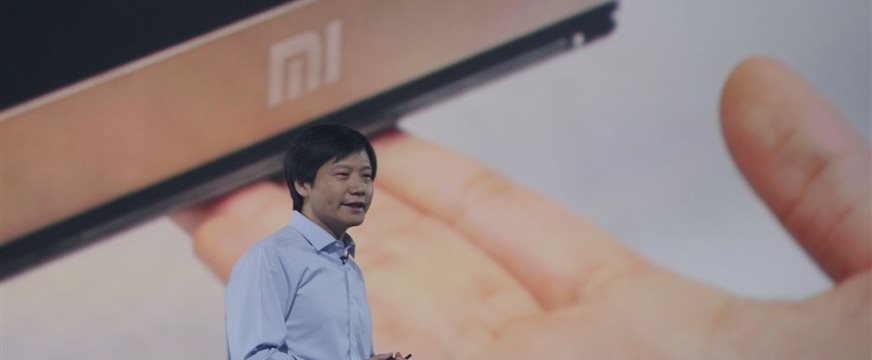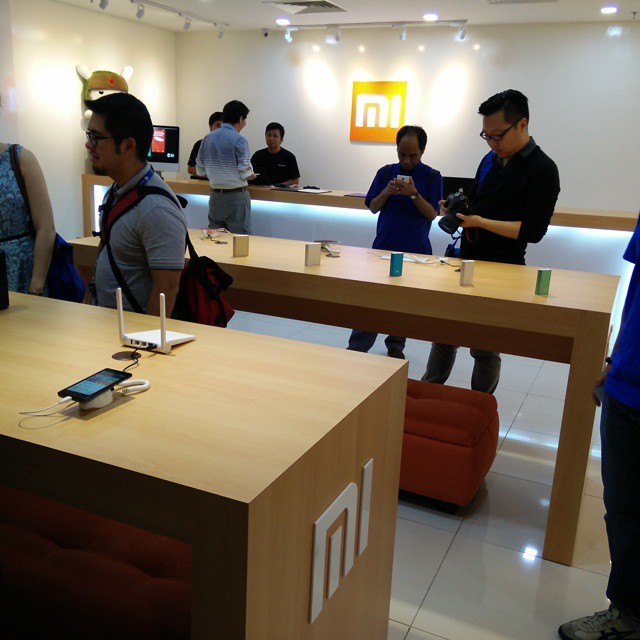
“One day I woke up and thought, ‘I’m already 40 and I’ve achieved nothing,” Xiaomi's Lei Jun says. “I had a dream when I was young to found a global, first-rate company.”
Today, Xiaomi’s aim is "to change the world’s view of Chinese products,” Mr Jun says noting that China is no longer about cheap manufacturing and copycats.
In April 2010, Chief Executive Officer Lei Jun founded Xiaomi with Bin Lin, a former Google Inc. and Microsoft Corp. executive. "Xiaomi" means “millet,” a Chinese staple that is nutritious but inexpensive. While Chinese consumers at the time could buy expensive foreign smartphones or cheap Chinese fakes, there was a void between that Mr. Lei decided to target, the Wall Street Journal tells.
Xiaomi introduced its phone in August 2011, with Mr. Lei trumpeting that it had a faster processor than Apple’s iPhone 4 and Samsung’s Galaxy S2. Its price was 1,999 yuan, under half that of a 16GB iPhone 4 in China.
According to IDC, in the first quarter of this year, Xiaomi had 13.7% of the Chinese market, just behind Apple’s 14.7%. The firm sales more than doubled in 2014 to 61 million smartphones and it expects to sell up to 100 million this year.
Xiaomi then started selling TV sets in 2013 and a tablet in 2014, while adding other peripheral products. It invested in dozens of Chinese startups, including one that bought the Segway brand in April. It says it has over 8,000 employees.
By the time they sold their first phone, they had a ready customer base: the company's online forum had attracted more than half a million users and marketed directly to them.

While the company produces a wide range of products including TV sets, smart wristbands, etc, phones are its biggest sellers. It designs them with specifications similar to those of Apple’s iPhones, Samsung’s Galaxy line and other models. When launching the product, it compares features of its new smartphone with the iPhone’s, then announces the price - half the iPhone’s or less.
Attracting customers to buy Internet services that are more profitable than Xiaomi’s smartphones, such as games, apps, videos, financial services and advertisements in its content, is a goal Mr Lei has set for the company.
Xiaomi’s high-end 64 GB Mi Note Pro smartphone costs 2,999 yuan ($489) in China, compared with 6,088 yuan for a 64GB Apple iPhone 6 and 5,288 yuan for a 32GB Samsung Galaxy S6.
It dented Samsung’s China market share badly in 2014, one factor forcing the South
Korean company to post a huge profit drop and to rethink its strategy.
Xiaomi was prosecuted in India, as Sweden's Ericsson claimed that Chinese phones infringed on its wireless patents, saying that it sued “as a last resort” when Xiaomi didn’t respond to attempts to discuss licensing.
Moreover, in India, the company's largest foreign market, Xiaomi faces pressure from its established local competitors, such as Micromax Informatics Ltd. However, it is still the fifth largest smartphone seller in the country as of the fourth quarter 2014.
However, Mr Jun has bigger, global ambitions, of
which his push into India is part: to create the first Chinese consumer
brand that is cool abroad.
Lei’s business model in China where Xiaomi doesn’t advertise much and sells mostly online will yet have to be proved acceptable overseas. This concept had to be changed in India - where consumers mostly buy in shops.
“In the smartphone world, there is no one comparable” with its business model, says Aditya Awasthi, research head at LexInnova, a Houston tech-consulting firm. “It’s a new-age smartphone company.”
Little known overseas and only five year old, China's successful smartphone maker is in a lot of ways a disorganized startup, as the Wall Street Journal calls it. In the meantime, it is one of the world's fastest growing tech-firms and most valuable startups, with a valuation of $46 billion by some estimates. Now it has an aim to conquer consumers in the West.


